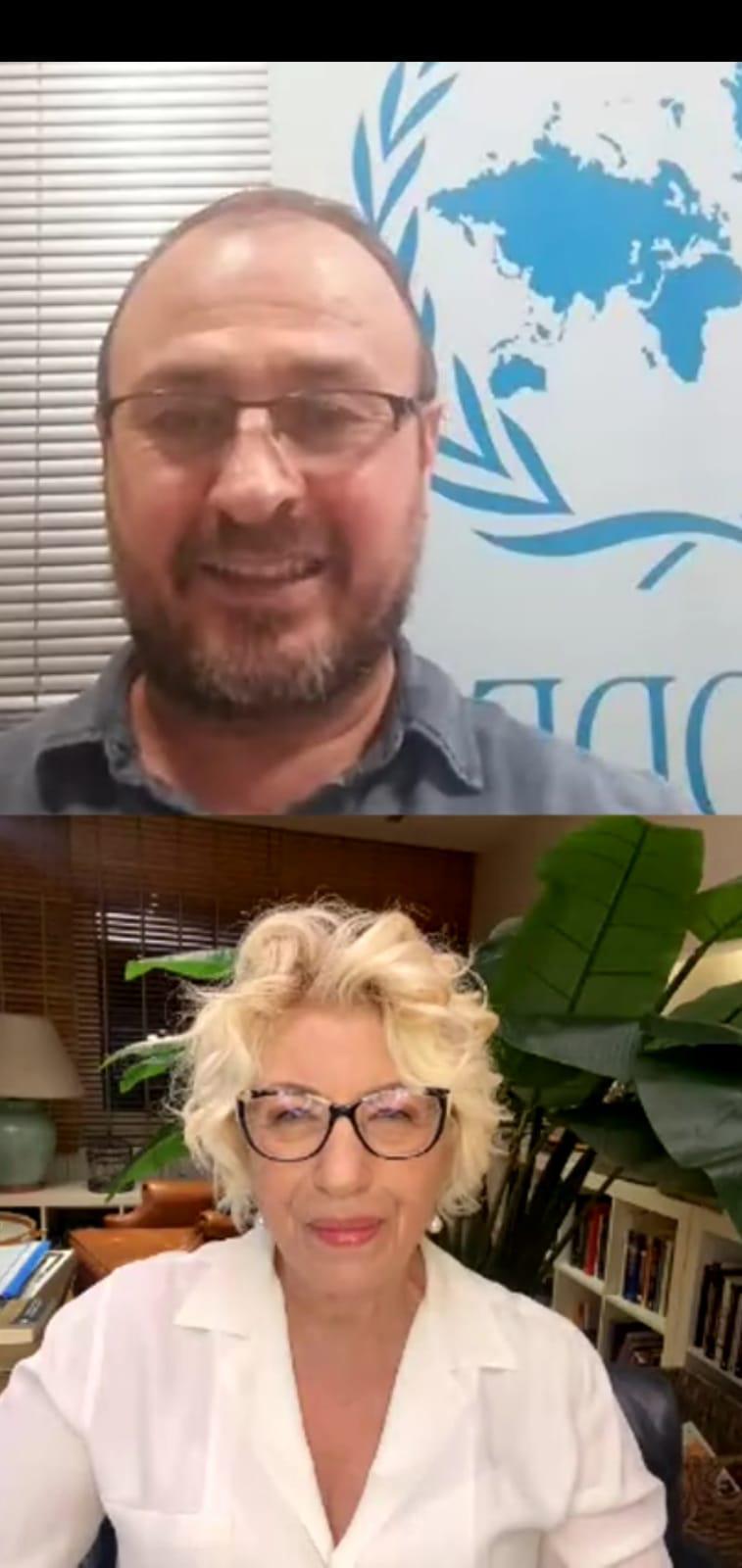Atasoy: "Addiction will continue as long as we live"
Üsküdar University Vice Rector, Director of the Graduate School of Addiction and Forensic Sciences Prof. Sevil Atasoy was the guest of the World Association of Sociologists (DUSODER) on Instagram. Atasoy, who made important evaluations under the title of "Social Change and Sensitivity in Addiction", pointed out that the issue of addiction has been a place in societies since the day human beings began to exist. Atasoy stated that "As long as human beings have existed, we have seen that they have been addicted to certain behaviors and chemicals. This is not a new issue. It is a phenomenon that will continue as long as human beings exist."
"Dependency will continue as long as human beings exist"
Pointing out that a ddictive behavior has developed since the existence of human beings, Prof. Sevil Atasoy stated that "It is not just substance abuse. Since human beings have existed, we see that they have been addicted to certain behaviors and chemicals. This is not a new issue. It is a phenomenon that will continue as long as human beings exist and as long as they live. However, in the last century, addiction has changed a lot. In particular, there are differences in the field of psychoactive substances. We used to call substance users addicted. Now there is substance abuse, and there are disorders of substance use. Professionals in this field divide into two large fields. The first is those who are in need of treatment, and the second is those who use substances occasionally. The reason for this distinction is the criminal laws. In other words, it is to distinguish in which case it will be considered a crime and in which case it should be treated. It is not just about medical depiction. The issue is to separate different dimensions of how society will be evaluated in terms of public health."
ddictive behavior has developed since the existence of human beings, Prof. Sevil Atasoy stated that "It is not just substance abuse. Since human beings have existed, we see that they have been addicted to certain behaviors and chemicals. This is not a new issue. It is a phenomenon that will continue as long as human beings exist and as long as they live. However, in the last century, addiction has changed a lot. In particular, there are differences in the field of psychoactive substances. We used to call substance users addicted. Now there is substance abuse, and there are disorders of substance use. Professionals in this field divide into two large fields. The first is those who are in need of treatment, and the second is those who use substances occasionally. The reason for this distinction is the criminal laws. In other words, it is to distinguish in which case it will be considered a crime and in which case it should be treated. It is not just about medical depiction. The issue is to separate different dimensions of how society will be evaluated in terms of public health."
“We need to examine addiction with its sociological dimension."
Stating that every society uses these substances, which affect people's behavior, decision-making, education and production, Atasoy expressed that "When we look at addiction as a public health issue, everyone approaches it as if they are struggling with a disease. But we should examine the issue from its sociological perspective. Talking about what sociology can do for public health can give much healthier results. We need to know the problems of society. In other words, we should evaluate which problems evolve into which substance addiction and how we can stop it."
"We must teach our children to say no"
Atasoy pointed out that addiction should be fought in two different ways and made the following remarks: "The first is to raise awareness, and the second is to fight institutionally. First of all, we need to be careful. We need to teach our children how to say ‘No.’ We need to teach them that whatever is extended to them will not solve the problem but will bring about other problems. We must give our children the confidence that these problems can be solved in the family, at school, and that they can tell the truth without fear. A child cannot be whipped into shape. Family is the most important part of an education, and this education should be with understanding, understanding their problem, and finding solutions. No person wants to escape from an environment where they feel safe. If a child wants to run away from home, the reasons for this should be investigated thoroughly."
Üsküdar News Agency (ÜNA)